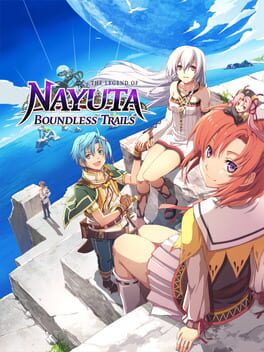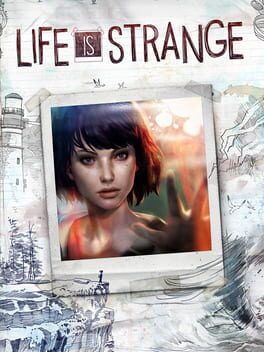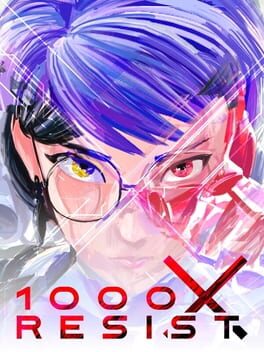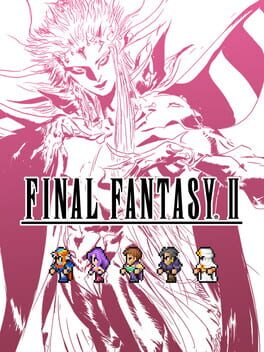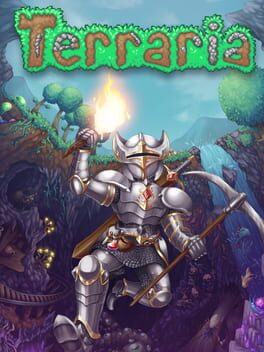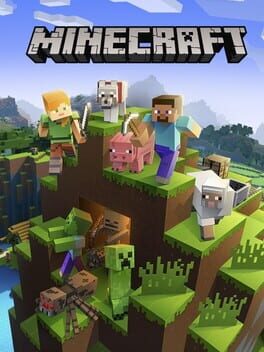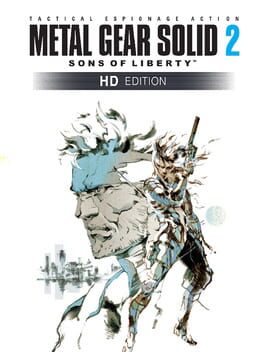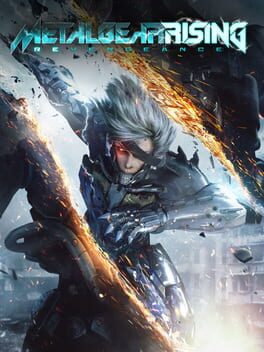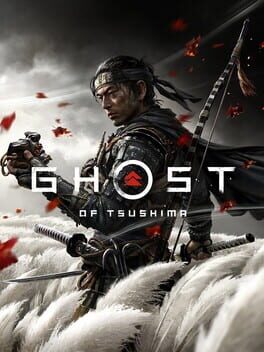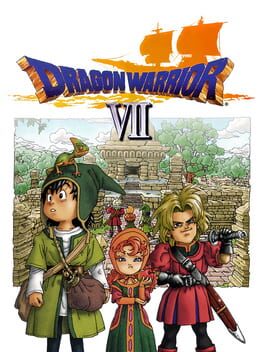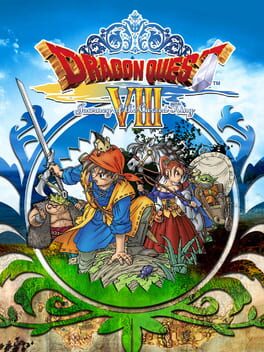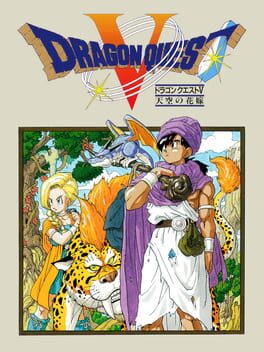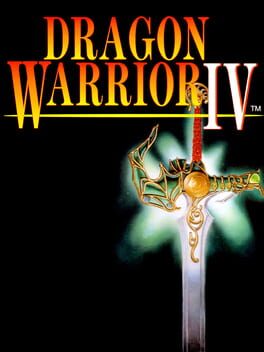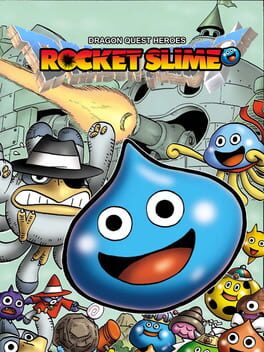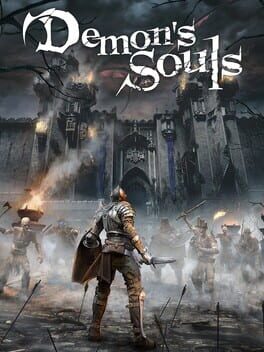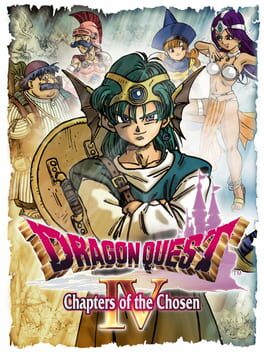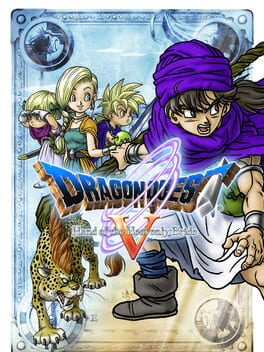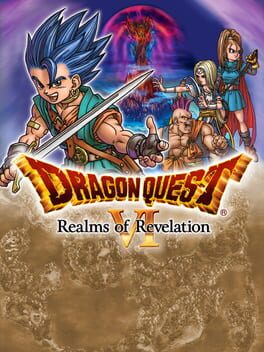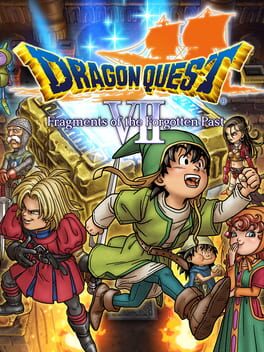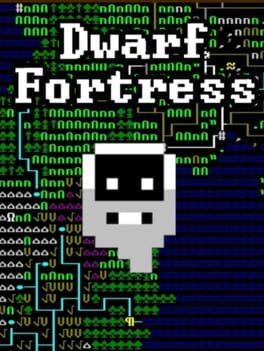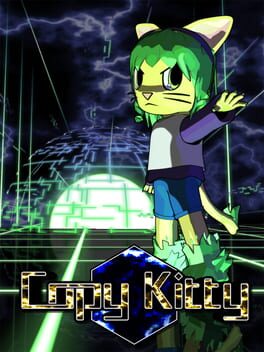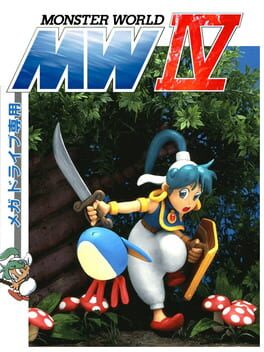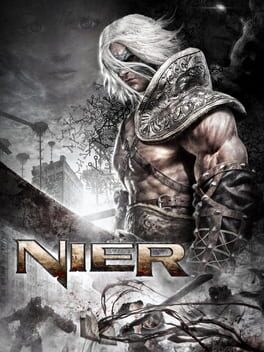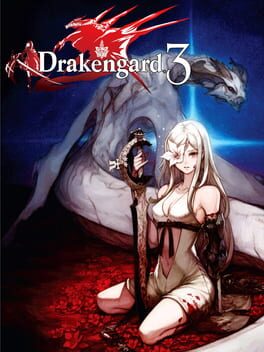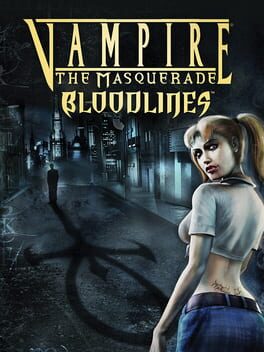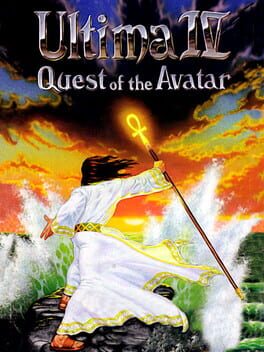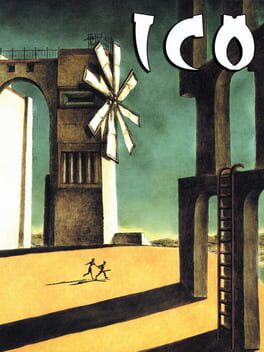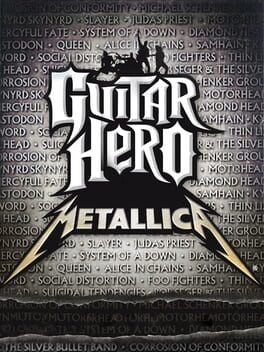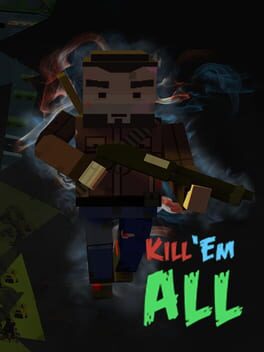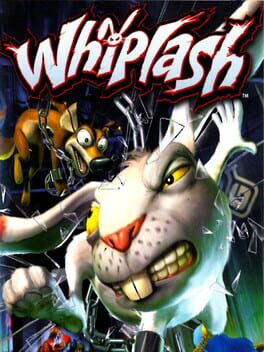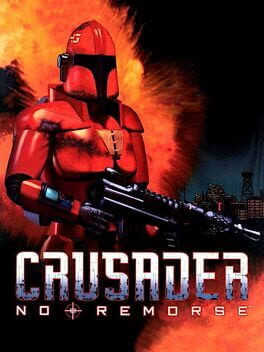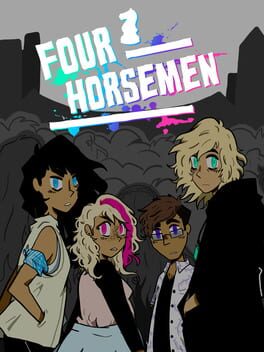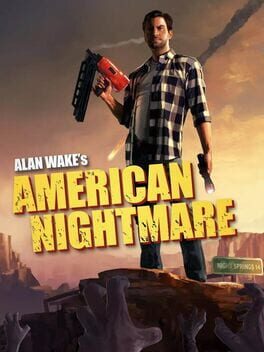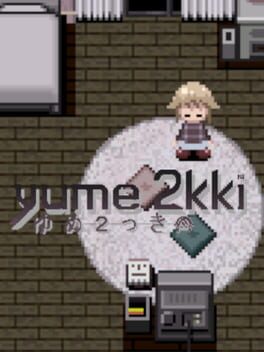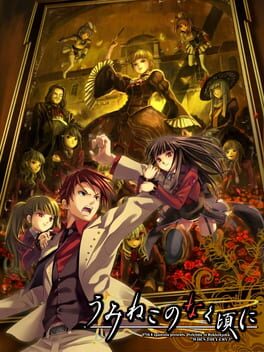calebthemage
199 reviews liked by calebthemage
Nayuta no Kiseki was a game that i've been looking forward since i've caught up to trails (Kuro 1 back then) and something was always strange of why this game took more than a decade to get localized and after NISA announcing Nayuta is coming to west, nothing could've prepared on how much i've loved.
It's so crazy knowing Falcom releasing games every single year, but something is very different in this one game especifically. For a example that really took their own time to create an story than doesnt really rely in the other games, and that's the biggest strength of this game, it gives a sense of identity while pleasing the veterans like me. Also it's not a game that was forced to be the next game for whatever means, like Tokyo Xanadu was released to give more dev time for YS 8 or Kuro no Kiseki 2 for YS X in the same reason.
So coming from after Kuro 2, i'm so glad Nayuta felt like a complete fresh of an air, chibi sprites, old falcom soundteam soul, immaculate art direction and a simple but touching story while maintaining a bit of the Trails series is everything i wished for. It's safe to say that it meet my expectations by a long shot, playing an trails game late a night and having me dialed makes this game an another special to me. Especially considering the struggle of being an Trails fan.
The last thing i wanted to mentioned is how i geniuely missed the old comfy and insane tracks that Falcom is very known for, especially Saki Momiyama (Zero/Azure composer) was insane in this game, it geniuely stole the spotlight for me and makes me miss the cohesion and the passion of every sound team composer and making an special game for as long they can remember.
It's so crazy knowing Falcom releasing games every single year, but something is very different in this one game especifically. For a example that really took their own time to create an story than doesnt really rely in the other games, and that's the biggest strength of this game, it gives a sense of identity while pleasing the veterans like me. Also it's not a game that was forced to be the next game for whatever means, like Tokyo Xanadu was released to give more dev time for YS 8 or Kuro no Kiseki 2 for YS X in the same reason.
So coming from after Kuro 2, i'm so glad Nayuta felt like a complete fresh of an air, chibi sprites, old falcom soundteam soul, immaculate art direction and a simple but touching story while maintaining a bit of the Trails series is everything i wished for. It's safe to say that it meet my expectations by a long shot, playing an trails game late a night and having me dialed makes this game an another special to me. Especially considering the struggle of being an Trails fan.
The last thing i wanted to mentioned is how i geniuely missed the old comfy and insane tracks that Falcom is very known for, especially Saki Momiyama (Zero/Azure composer) was insane in this game, it geniuely stole the spotlight for me and makes me miss the cohesion and the passion of every sound team composer and making an special game for as long they can remember.
Games that tell stories only capable of being relayed through the medium of gaming will always hold a special place in my heart. Since my first encounters with video games as a whole, I've never quite found any method of storytelling to even compare to it. Sure, the occasional film or manga or what have you might catch my attention, but those I hold at the peak of any other medium don't really come close to the experiences I've had with gaming.
Return of the Obra Dinn has once again solidified this idea for me, and it does so in such a way where I feel that everything within the experience is deserving of commendation. The actors, writing, art, music, and everything all together unite for an extremely fleshed out and cohesive experience that held my attention the whole way through. I believe this holds true for much of the game's playerbase due to the incredible completion rates seen on each of the achievements. Return of the Obra Dinn manages to create a very unique gameplay loop I haven't quite seen elsewhere, it's an incredibly fresh and engaging experience that I feel anyone with a brain could hold appreciation for. It might not be a grand story in comparison to other titles of today, but it sure as hell is a good one, a GREAT one.
A game that will constantly have you thinking, theorizing, trying new things, finding new angles, and most importantly, keeping you engaged following through its bizarre and beautiful storytelling. This is a game that I believe couldn't and shouldn't be passed up, if you're interested, play it. You won't regret it.
Return of the Obra Dinn has once again solidified this idea for me, and it does so in such a way where I feel that everything within the experience is deserving of commendation. The actors, writing, art, music, and everything all together unite for an extremely fleshed out and cohesive experience that held my attention the whole way through. I believe this holds true for much of the game's playerbase due to the incredible completion rates seen on each of the achievements. Return of the Obra Dinn manages to create a very unique gameplay loop I haven't quite seen elsewhere, it's an incredibly fresh and engaging experience that I feel anyone with a brain could hold appreciation for. It might not be a grand story in comparison to other titles of today, but it sure as hell is a good one, a GREAT one.
A game that will constantly have you thinking, theorizing, trying new things, finding new angles, and most importantly, keeping you engaged following through its bizarre and beautiful storytelling. This is a game that I believe couldn't and shouldn't be passed up, if you're interested, play it. You won't regret it.
Life is Strange
2015
Critters for Sale
2021
Final Fantasy IX
2000
Persona 3 Reload
2024
Mother 3
2006
Chapter One
A child ran off from their village, filled with rage. A petty kind of anger; one that the child would have all but forgotten about the next time you saw them. This next time would never come, though. The child disappeared and in their place stood a Destroyer.
Chapter Two
The village seemed different. Strange new people kept showing up, with pig shaped masks covering their eyes. On the surface, they went about their business and chatted like any other villager but the more mind you paid them, the more their words rang hollow. Their thoughts and jokes seemed inorganic; mass produced even. As these Pigmasks gathered in the village, the original people there felt alienated. An old man, once known for his insights and his sharp wit would get angrier and angrier, lashing out at those around him and eventually leaving. More villagers would follow suit, some of them against their will, as this community they saw as a safe haven to share things they couldn’t share anywhere else slowly but surely became part of that “anywhere else.”
Were these Pigmasks to blame for everything? Or was it merely a case of things that always infested the community finally bubbling up to the surface? And what of the Destroyer, a one-time villager, now hailed as the champion of the Pigmasks?
Chapter Three
A monkey walked through a forest with boxes on their back; head and torso fighting a fierce battle to not fall and hit the ground. This grueling process eventually became routine and the monkey’s body eventually went on autopilot. They had all this time to think about if they’ll ever move past this task and if they’ll ever have a purpose.
Did the Destroyer have the same thoughts in this same forest?
Chapter Four
Another village child was not unlike the one who would become the Destroyer. In fact, you could say that these two village children were a single entity; two sides of the same coin. The Destroyer was the head of this coin, facing up and always the topic of conversation from those who saw this “face.” The tail, stuck to the ground, reveled in the attention the head received. They took glee in seeing friends talk about the Destroyer without any clue of its relation to the one standing near them. They searched for other villagers’ words on this mysterious Destroyer and snuck into houses to see them: the praise, the insults, the natural discussions surrounding this new “symbol” of the village.
This was not healthy for the village child. But still, could you blame them? This sensation of feeling important, even if that importance was just a niche micro-celeb in a small village, was much more comforting than the cold reality of meaning nothing in the grand scheme of things.
Chapter Five
A Pigmask working in a tower was a big fan of a rock band. They were utterly awestruck at the sight of that band’s merchandise on the man that entered the tower earlier that day and could not talk about anything other than that band: expressing their love of the band’s work, idolizing the ones behind it as supposedly great people, and elevating the band to some moral paragon because of milquetoast political opinions in its songs.
The Destroyer was in the tower too, watching this Pigmask’s conversation with mere apathy if not active contempt.
Chapter Six
Sometimes, ghosts of the past appear as reminders of what will never come back.
Chapter Seven
The Destroyer pulled a needle out of the ground and felt nothing. They pulled quite a bit of these needles before but something was different this time. The act was now done only out of some perceived obligation; to the Pigmasks and villagers cheering on or to the fake images of hearts that result from the act. It was time for the last needle to be pulled.
Chapter Eight
The Destroyer laid on the ground motionless as its tail pulled the final needle on its behalf. Its supposed stardom was crushed into not even half a star.
It’s over.
A child ran off from their village, filled with rage. A petty kind of anger; one that the child would have all but forgotten about the next time you saw them. This next time would never come, though. The child disappeared and in their place stood a Destroyer.
Chapter Two
The village seemed different. Strange new people kept showing up, with pig shaped masks covering their eyes. On the surface, they went about their business and chatted like any other villager but the more mind you paid them, the more their words rang hollow. Their thoughts and jokes seemed inorganic; mass produced even. As these Pigmasks gathered in the village, the original people there felt alienated. An old man, once known for his insights and his sharp wit would get angrier and angrier, lashing out at those around him and eventually leaving. More villagers would follow suit, some of them against their will, as this community they saw as a safe haven to share things they couldn’t share anywhere else slowly but surely became part of that “anywhere else.”
Were these Pigmasks to blame for everything? Or was it merely a case of things that always infested the community finally bubbling up to the surface? And what of the Destroyer, a one-time villager, now hailed as the champion of the Pigmasks?
Chapter Three
A monkey walked through a forest with boxes on their back; head and torso fighting a fierce battle to not fall and hit the ground. This grueling process eventually became routine and the monkey’s body eventually went on autopilot. They had all this time to think about if they’ll ever move past this task and if they’ll ever have a purpose.
Did the Destroyer have the same thoughts in this same forest?
Chapter Four
Another village child was not unlike the one who would become the Destroyer. In fact, you could say that these two village children were a single entity; two sides of the same coin. The Destroyer was the head of this coin, facing up and always the topic of conversation from those who saw this “face.” The tail, stuck to the ground, reveled in the attention the head received. They took glee in seeing friends talk about the Destroyer without any clue of its relation to the one standing near them. They searched for other villagers’ words on this mysterious Destroyer and snuck into houses to see them: the praise, the insults, the natural discussions surrounding this new “symbol” of the village.
This was not healthy for the village child. But still, could you blame them? This sensation of feeling important, even if that importance was just a niche micro-celeb in a small village, was much more comforting than the cold reality of meaning nothing in the grand scheme of things.
Chapter Five
A Pigmask working in a tower was a big fan of a rock band. They were utterly awestruck at the sight of that band’s merchandise on the man that entered the tower earlier that day and could not talk about anything other than that band: expressing their love of the band’s work, idolizing the ones behind it as supposedly great people, and elevating the band to some moral paragon because of milquetoast political opinions in its songs.
The Destroyer was in the tower too, watching this Pigmask’s conversation with mere apathy if not active contempt.
Chapter Six
Sometimes, ghosts of the past appear as reminders of what will never come back.
Chapter Seven
The Destroyer pulled a needle out of the ground and felt nothing. They pulled quite a bit of these needles before but something was different this time. The act was now done only out of some perceived obligation; to the Pigmasks and villagers cheering on or to the fake images of hearts that result from the act. It was time for the last needle to be pulled.
Chapter Eight
The Destroyer laid on the ground motionless as its tail pulled the final needle on its behalf. Its supposed stardom was crushed into not even half a star.
It’s over.
1000xResist
2024
There are games you finish and don't know what to say because they are so unremarkable, and then there are games like 1000x resist where I sit at my computer inmediately after thinking how exactly I could do the game justice without just playing it again whilst taking notes.
I'll try to be brief, but what 1000x resist's sci fi narrative adventure game brings to the table is that its not only dense as hell plot and theme wise, feeling almost like an adaptation of some acclaimed novel, whilst also having stylistic flourishes that are both impressive and also feel purposeful in a way that a higher budget game probably wouldn't. They made a game this visually striking with what feels like cardboard sets and a few unity shaders. The starkness of the environment design and the various shifts of perspective from over the shoulder to first person to top down to side scroller in a way that feels elegant rather than whiplash to the extreme.
The credits have the usual indie game thing where one guy was Modeler, Texturer, Writer, Designer, Costum Designer, Chef, Lawyer and Defender of the Innocent. The game is so impressive as someone who does 3D modelling myself, I have taken a bunch of screenshots of the game simply because I love how they look. One small ass team somehow puts most AAA games I've played to shame in the visual department.
Thats not to say the game's budget or lack thereof doesn't become apparent with the lack of facial animation. Of course the game understands this to some extent, hence the choice of making the sisters require masks to breathe and be clones of each other (hence, only like 5 or so models had to be rigged up) but thats what taking advantage of your limitations is all about.
Story wise, its again hard for me to really comment because its dense but in a way that all great narratives are, like say, Moby Dick or The Truman show, which are enjoyable both at surface level and on a deeper read of the symbolism. Not everything worked for me, and the resolutions of the endings could have perhaps been more elegant, as well as all the Hong Kong stuff carrying the stench of liberalism about it (Incidentally the cops of the provisional government being called the Red Guard was really on the nose) but the game is otherwise so engaging that I don't mind. Strong personal contender for GOTY, it and Extreme Evolution : Drive to Divinity are the front-runners for me.
I'll try to be brief, but what 1000x resist's sci fi narrative adventure game brings to the table is that its not only dense as hell plot and theme wise, feeling almost like an adaptation of some acclaimed novel, whilst also having stylistic flourishes that are both impressive and also feel purposeful in a way that a higher budget game probably wouldn't. They made a game this visually striking with what feels like cardboard sets and a few unity shaders. The starkness of the environment design and the various shifts of perspective from over the shoulder to first person to top down to side scroller in a way that feels elegant rather than whiplash to the extreme.
The credits have the usual indie game thing where one guy was Modeler, Texturer, Writer, Designer, Costum Designer, Chef, Lawyer and Defender of the Innocent. The game is so impressive as someone who does 3D modelling myself, I have taken a bunch of screenshots of the game simply because I love how they look. One small ass team somehow puts most AAA games I've played to shame in the visual department.
Thats not to say the game's budget or lack thereof doesn't become apparent with the lack of facial animation. Of course the game understands this to some extent, hence the choice of making the sisters require masks to breathe and be clones of each other (hence, only like 5 or so models had to be rigged up) but thats what taking advantage of your limitations is all about.
Story wise, its again hard for me to really comment because its dense but in a way that all great narratives are, like say, Moby Dick or The Truman show, which are enjoyable both at surface level and on a deeper read of the symbolism. Not everything worked for me, and the resolutions of the endings could have perhaps been more elegant, as well as all the Hong Kong stuff carrying the stench of liberalism about it (Incidentally the cops of the provisional government being called the Red Guard was really on the nose) but the game is otherwise so engaging that I don't mind. Strong personal contender for GOTY, it and Extreme Evolution : Drive to Divinity are the front-runners for me.
1000xResist
2024
i've been struggling with what to say about this for a couple weeks, it's a very difficult piece to talk about abstractly because it's best experienced blind. i guess the most important thing for me is that this piece expanded my view of what the medium can do and be. the best argument for a multidisciplinary approach to creativity i've seen in a long time.
Final Fantasy II
2021
Final Fantasy II is a really complicated game to talk about.
This is a game I really appreciate for how many things it was willing to do differently from its predecessor, though not all of those things were ultimately to the game's benefit.
For instance, dungeons feel bigger, and not just because of the long corridors and trap-rooms, but there's a lot of back-and-forth between every dungeon floor, as each floor often has multiple sections that must be reached from higher or lower floors, whereas the FF1 dungeons felt incredibly simple and straightforward. It's a style of design that's even reflected in more modern JRPGS like Bravely Default.
The new skill leveling system is one of my favorite systems in a JRPG, and I can't help but feel it gets a lot of flak simply from how much more complicated it is than simply saying 'you level up what you use'. Rank, an entirely separate hidden mechanic that weighs the difficulty of each encounter, actually does a lot to weigh into your skill growths and proves the idea pushed by people like ProJared (he actually gets a fair bit wrong on other things like why you'd want to use Rods or Knives, but that's another thing entirely) that farming trash is just as good as farming endgame mobs. The systems in place for this game are good, if not maybe underutilized or easily to exploit.
They're interesting, unique, and help to give the game a tangible sense of identity. The game runs afoul when it comes to teaching the player those systems though, and that's why I think Pixel Remaster does a really good job at helping to tweak things rather than fundamentally overhauling everything like a full-on remake (Jamie I know you're reading this, and I know I just told you if I think there's one FF game that deserves a remake it's this one, but I changed my mind while writing this). It's not a perfect fix admittedly, though the boost functions being in place certainly does help make the game more approachable and better suited to broader tastes (I had the spell level speed cranked to 4x, because honestly, having to level magic individually IS a bit bull)
Don't get me wrong, I don't want to come off like I think FF2 is 'a good bad game' or saved by speculative, nebulous quantities like 'Soul'; I think the game we have here is genuinely great. I definitely enjoyed it a lot more than the first game, even if part of the reason why is that I didn't have a dead weight Red Mage in my party this time around. If there's one 'fix' or change I would propose for a remake, I'd just like for more character moments to flesh out the main trio. They don't even qualify as characters, honestly. Everyone has the same motivation of defeating the Empire. Firion has no dialogue that gives him a personality, Maria has even LESS dialogue and the most interesting thing about her (being the sister of Leon) is not important in any way, and Guy is, well... He's Guy. He's my de facto favorite character in the game just because of Guy Speak Beaver.
This game is an absolute nightmare of system and mechanic design, but maybe that doesn't need to be fixed. If you're the type of person who really loves studying the internal workings of games to min-max stuff or experimenting with strategy, I think this game will honestly drive you insane. The fact that a no-gear run is one of the most stable methods for getting through the game is both incredibly interesting to me when examining the game as an artifact and also serves to highlight just how much of the game's design degenerates when you're able to learn even a little bit about it. Why would I give my team different weapons when bare-fists are so effective? Why put anyone in the backrow with a bow when leveling Evade to become nigh-untouchable can be done without even trying if you give everyone a shield for an hour? Why use any elemental damage magic when Teleport can KO entire encounters at once? When there's so many different ways to break the game to allow yourself to do anything you want, then where's the value in that pure, unrestricted agency?
I'm not going to try and make a half-hearted pivot into saying this game is actually a misunderstood masterpiece about how the scope of our agency and how using that agency to persevere ultimately makes us stronger than our greatest foes or something. It's not what I care about in the game. I adore that Final Fantasy II is a very complex game that is easily broken. When it's not intent on wasting your time with empty corridors, it's actually an incredibly atmospheric, brooding game that I wish I could find more of in other games.
It feels weird, realizing I wish more games would be willing be like fucking Final Fantasy II, but that's how I feel. I want more games that don't feel beholden to franchise identity and instead try to push themselves into further heights rather than attempting to 'refine' their formula. I want more games that try something different with their style. I want more games that try to become their own thing rather than another entry in an established IP.
I want more games that try. Because if there's one thing that Final Fantasy II certainly did, it's that. It tried, and in many ways, it succeeded, and in a lot of other ways, it failed.
But if it hadn't, what would we have to talk about?
This is a game I really appreciate for how many things it was willing to do differently from its predecessor, though not all of those things were ultimately to the game's benefit.
For instance, dungeons feel bigger, and not just because of the long corridors and trap-rooms, but there's a lot of back-and-forth between every dungeon floor, as each floor often has multiple sections that must be reached from higher or lower floors, whereas the FF1 dungeons felt incredibly simple and straightforward. It's a style of design that's even reflected in more modern JRPGS like Bravely Default.
The new skill leveling system is one of my favorite systems in a JRPG, and I can't help but feel it gets a lot of flak simply from how much more complicated it is than simply saying 'you level up what you use'. Rank, an entirely separate hidden mechanic that weighs the difficulty of each encounter, actually does a lot to weigh into your skill growths and proves the idea pushed by people like ProJared (he actually gets a fair bit wrong on other things like why you'd want to use Rods or Knives, but that's another thing entirely) that farming trash is just as good as farming endgame mobs. The systems in place for this game are good, if not maybe underutilized or easily to exploit.
They're interesting, unique, and help to give the game a tangible sense of identity. The game runs afoul when it comes to teaching the player those systems though, and that's why I think Pixel Remaster does a really good job at helping to tweak things rather than fundamentally overhauling everything like a full-on remake (Jamie I know you're reading this, and I know I just told you if I think there's one FF game that deserves a remake it's this one, but I changed my mind while writing this). It's not a perfect fix admittedly, though the boost functions being in place certainly does help make the game more approachable and better suited to broader tastes (I had the spell level speed cranked to 4x, because honestly, having to level magic individually IS a bit bull)
Don't get me wrong, I don't want to come off like I think FF2 is 'a good bad game' or saved by speculative, nebulous quantities like 'Soul'; I think the game we have here is genuinely great. I definitely enjoyed it a lot more than the first game, even if part of the reason why is that I didn't have a dead weight Red Mage in my party this time around. If there's one 'fix' or change I would propose for a remake, I'd just like for more character moments to flesh out the main trio. They don't even qualify as characters, honestly. Everyone has the same motivation of defeating the Empire. Firion has no dialogue that gives him a personality, Maria has even LESS dialogue and the most interesting thing about her (being the sister of Leon) is not important in any way, and Guy is, well... He's Guy. He's my de facto favorite character in the game just because of Guy Speak Beaver.
This game is an absolute nightmare of system and mechanic design, but maybe that doesn't need to be fixed. If you're the type of person who really loves studying the internal workings of games to min-max stuff or experimenting with strategy, I think this game will honestly drive you insane. The fact that a no-gear run is one of the most stable methods for getting through the game is both incredibly interesting to me when examining the game as an artifact and also serves to highlight just how much of the game's design degenerates when you're able to learn even a little bit about it. Why would I give my team different weapons when bare-fists are so effective? Why put anyone in the backrow with a bow when leveling Evade to become nigh-untouchable can be done without even trying if you give everyone a shield for an hour? Why use any elemental damage magic when Teleport can KO entire encounters at once? When there's so many different ways to break the game to allow yourself to do anything you want, then where's the value in that pure, unrestricted agency?
I'm not going to try and make a half-hearted pivot into saying this game is actually a misunderstood masterpiece about how the scope of our agency and how using that agency to persevere ultimately makes us stronger than our greatest foes or something. It's not what I care about in the game. I adore that Final Fantasy II is a very complex game that is easily broken. When it's not intent on wasting your time with empty corridors, it's actually an incredibly atmospheric, brooding game that I wish I could find more of in other games.
It feels weird, realizing I wish more games would be willing be like fucking Final Fantasy II, but that's how I feel. I want more games that don't feel beholden to franchise identity and instead try to push themselves into further heights rather than attempting to 'refine' their formula. I want more games that try something different with their style. I want more games that try to become their own thing rather than another entry in an established IP.
I want more games that try. Because if there's one thing that Final Fantasy II certainly did, it's that. It tried, and in many ways, it succeeded, and in a lot of other ways, it failed.
But if it hadn't, what would we have to talk about?
40 lists liked by calebthemage
by nsight |
24 Games
by Bells |
19 Games
by fascinator |
21 Games
by nsight |
9 Games
by CorpsSansOrganes |
6 Games
by Vee |
55 Games
by Bells |
80 Games
